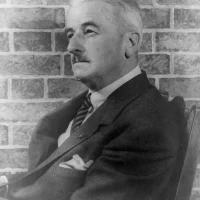On May 1, 1960, at the height of the Cold War, the Soviet Union brought down an American U-2 spy plane piloted by Francis Gary Powers. The U.S. government’s first reaction was to construct a believable cover story to conceal its program of high-altitude surveillance missions over the Soviet Union. Powers began his flight from… Read More "Cold War Cover Stories: The U-2 Incident"
The Suez Canal Company: Catalyst for an Egyptian Crisis
The Suez Crisis of 1956 had far-reaching implications not only for Egypt and the Middle East, but throughout the world. President Gamal Abdel Nasser had risen to power determined to rid Egypt of colonial influence and avoid Cold War alignment. When the U.S. and U.K. suddenly withdrew their offer to help finance construction of the… Read More "The Suez Canal Company: Catalyst for an Egyptian Crisis"
USAID: Working With State and DOD on Counter Terrorism – and with Oliver North in Honduras
Elizabeth Kvitashvili’s USAID career took her from Afghanistan to Honduras to Russia. She led efforts to provide humanitarian assistance amidst crisis and vast human suffering. Along the way she encountered Oliver North in Central America and President Clinton at a chocolate factory in Russia. She also helped USAID determine its role in countering the spread of… Read More "USAID: Working With State and DOD on Counter Terrorism – and with Oliver North in Honduras"
In the early morning hours of October 11, 1987, a Burmese turboprop plane transporting 49 passengers, including 36 foreign nationals and four crew members, departed from Rangoon (now Yangon) and began its flight towards the popular tourist town of Pagan. Approaching the airport, the plane’s wing clipped the ridge of a mountain just outside the… Read More "The Diplomacy of Tragedy: Burmese Airways Crash Kills 14 Americans in 1987"
Russian Interference and the Marshall Plan
Russian Disinformation is Not New, Say Diplomats Who Implemented the Marshall Plan The obstacles the United States faced in implementing the Marshall Plan in the late 1940s and early 1950s included a vigorous propaganda contest with the USSR and their European communist allies. By the time Secretary of State George Marshall announced the plan at… Read More "Russian Interference and the Marshall Plan"
Remembering Thailand’s King and the Transition to Democracy
Bhumibol Adulyadej, also known as Rama IX, was the ninth monarch of Thailand and the longest-serving head of state in the world at the time of his death in October 2016. Beloved by his people, he was also a friend of the United States. Ambassador David Lambertson recalled his experiences with King Bhumibol and other… Read More "Remembering Thailand’s King and the Transition to Democracy"
Act of Kindness: Chinese President Xi Jinping helped grant an American ambassador his final wish
Amb. John Leighton Stuart was a central figure in U.S.-China relations until his recall in 1949, when the United States broke diplomatic relations. His ashes were interred in at his childhood home in Hangzhou in 2008, with the assistance of then-Zhejiang Party Secretary Xi Jinping, now China’s powerful President. Stuart was the first president of… Read More "Act of Kindness: Chinese President Xi Jinping helped grant an American ambassador his final wish"
Getting Mexico to the NAFTA Negotiating Table
U.S. diplomats who helped lay the groundwork for the North American Free Trade Agreement (NAFTA) first had to overcome entrenched Mexican skepticism. The United States, Canada, and Mexico decided in mid-1990 to start negotiating a free trade agreement. Discussions began in earnest early the following year. By mid-1993 the parties were fine-turning a draft agreement.… Read More "Getting Mexico to the NAFTA Negotiating Table"
The collapse of Zaire at the end of the First Congo War 1997
In the aftermath of the 1994 Rwandan genocide, ethnic Hutu refugees — including génocidaires — who had crossed into East Zaire to escape persecution from the new Tutsi government carried out attacks against ethnic Tutsis from both Zaire (now the Democratic Republic of the Congo) and Rwandan refugees. The Zairian government was unable to control the ethnic Hutu marauders, and indeed lent them some support as allies against the new, Tutsi-led Rwandan government. In response, the Tutsis in Zaire joined a revolutionary coalition headed by Laurent-Désiré Kabila. Kabila’s aim was to overthrow Zaire’s one-party authoritarian government run by Mobutu Sese Seko since 1965. With Kabila’s forces on the march, Zaire was soon engulfed in conflict. These hostilities, which took place from 1996-1997, are known as the “First Congo War” and lead to the creation of Zaire’s successor state The Democratic Republic of Congo. The United States, who had supported Mobutu until the end of the Cold War, recognized how potentially dangerous the situation was as Kabila gained control of most of the country and advanced rapidly towards the capital city of Kinshasa. In 1997, the United States sent a small group of diplomats to broker negotiations and attempt to come to a peaceful agreement between Mobutu and Kabila. Read More "The collapse of Zaire at the end of the First Congo War 1997"
William Faulkner, among the most decorated writers in American literature with the 1949 Nobel Prize for Literature, the Pulitzer Prize for Fiction and the National Book Award among his honors, was invited to Japan in 1955 under the auspices of the Exchange of Persons Branch of the United States Information Service (now consolidated into the… Read More "Sound, Fury, Brilliance & Booze: Faulkner in Post-War Japan"


